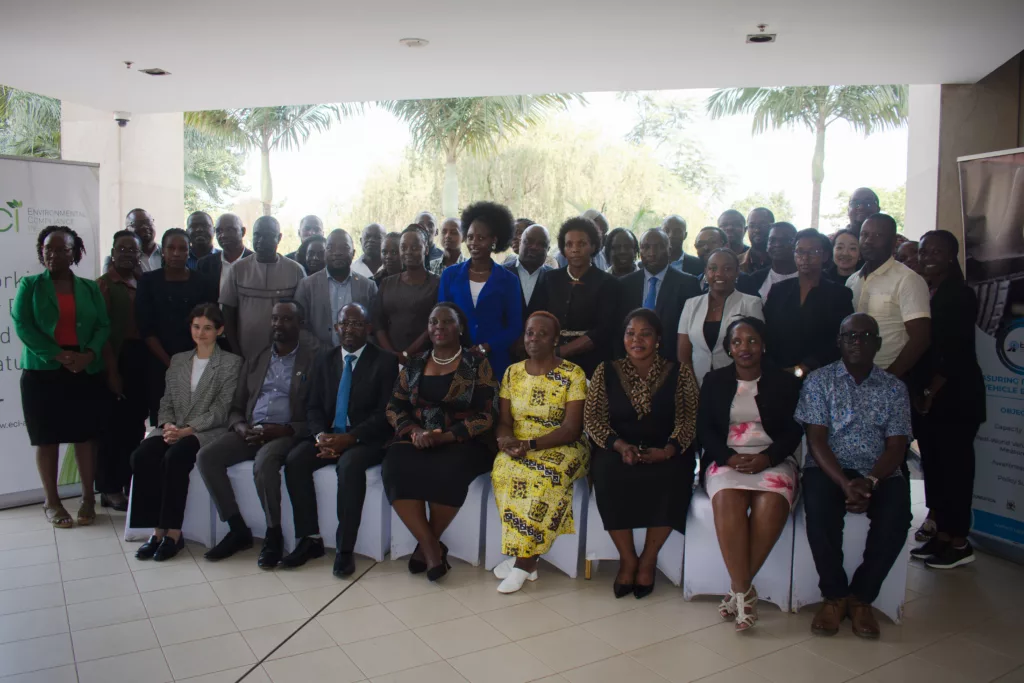Urgent action needed to address Ugandan fleet emissions, warns first African real-world emissions testing

(Kampala, Uganda) July 1, 2025 — Targeted action is urgently needed to address the worst-emitting vehicles and protect public health, according to the first African real world emissions testing conducted by The Real Urban Emissions (TRUE) Initiative in partnership with the United Nations Environment Programme (UNEP) in Kampala, Uganda.
Ambient air pollution in Kampala, to which road transport is a significant contributor (up to 60%), exceeds the WHO limit for particulate matter by up to 12 times and is estimated to account for 19% of adult deaths from non-external causes. The project aimed to understand the mix and impact of Kampala’s fleet. Emission testing of 6,000 vehicles took place on the streets of the Ugandan capital. Passenger cars, motorcycles, minibuses, large buses, light commercial vehicles (LCVs) and heavy commercial vehicles (HCVs) were part of the study which analyzed nitrogen oxides (NOx), nitrogen dioxide (NO2), black carbon (BC), and particle number (PN) emissions in real world conditions.
Although progress is being made in Uganda with the recent adoption of Euro 4 emission standards for all imports, both new and used, these standards are not yet enforced. The real-world data shows many vehicles, especially older and high-use vehicles, are extreme emitters. Key findings of the report included:
- Most vehicles in Kampala emit over Euro 4 emission limits, regardless of age or origin.
- Although newer gasoline passenger cars under 8 years of age showed lower NOx emissions compared to older cars, levels were still 5.5 times higher than Euro 4 limits.
- Diesel passenger cars, LCVs, and HCVs over 15 years old emitted three times more BC than those aged between 8 and 15 years.
- Newer vehicles were not always less polluting – commercial vehicles of all ages were poor performers.
- The average minibus taxi is 25 years old, and models over 15 years old produced BC emissions six times higher than those aged between 8 to 15 years old.
Recommendations of the report include:
- Strengthen vehicle importation requirements. Each imported vehicle should be tested to ensure Euro 4 standards are met upon importation, and standards should rise to Euro 6 levels by 2030.
- Vehicle inspections and maintenance. Emissions from vehicles already on the roads could be monitored and managed by enforcing Uganda’s regular vehicle inspection program to understand and resolve the causes of high-emitting vehicles in Kampala.
- Prioritise policies to promote cleaner public transportation. Transition to newer and lower-emitting minibus taxis should be encouraged with a 15-year limit now, down to eight by 2030.
The report outlines the air quality challenges in Uganda’s capital, however, the testing has broader implications for the continent. The flow of used vehicles from the global north is endemic. In Uganda alone, over 140,000 vehicles are imported every year, but more than a million move into the continent’s market each year. Further, the impact of emissions poses a threat not just to health, but to the climate crisis as well, particularly through CO2 and BC emissions.
Uganda’s Ministry of Works and Transport has begun drafting a roadmap and implementation plan for mandatory heavy-duty vehicle inspections based on the EAC vehicle emission standards, including the possible transition from the Euro IV/4 to the Euro VI/6 standard.
Rob de Jong, UNEP Mobility Unit Head, said: “Data from the real-world vehicle emissions measurement highlights the critical need for effective regulation of both vehicle and fuel standards. The findings provide evidence to policymakers on the urgency for countries in the East African Community and Africa to act and fully implement regionally harmonised EURO IV vehicle standards. This will not only improve the quality of imported fleets but also help reduce air pollution in the city of Kampala and across the region.”
Engineer Irene P. Bateebe, Permanent Secretary to the Uganda Ministry of Energy and Mineral Development, said: “Improving the quality of air and generally sustainable energy use in the country has been a key priority for the Ugandan Government in recent years. This is why action is being undertaken through several ministries, departments and agencies, from the promotion of clean energy supply, electric mobility, energy security to improved vehicle technology and vehicle inspection. All these measures will ensure that we have sustainable energy use, clean movement and sustainable development.”
Sheila Watson, FIA Foundation Deputy Director, said: “Testing real vehicles on real roads shows us all just how damaging emissions are on people and planet. Accurate, independent data arms policymakers, not just in Uganda but across the region, with knowledge and tools to address the toxic legacy of these vehicles.”
Mallery Crowe, International Council on Clean Transportation researcher & lead author, said: “Conducting the first-ever remote sensing campaign in Kampala was vital to filling the knowledge gap surrounding the fleet’s real-world emissions impact on air pollution. Insight from this study will be invaluable to policymakers as they work to operationalize policies and programs aimed at reducing emissions.”
About The Real Urban Emissions Initiative
The Real Urban Emissions (TRUE) Initiative supports cities worldwide to develop effective air quality and climate policies with independent real-world vehicle emissions data, technical analysis, and expert advice. The FIA Foundation and International Council on Clean Transportation established the TRUE Initiative.
Website | LinkedIn
About the International Council on Clean Transportation
The International Council on Clean Transportation (ICCT) is an independent research organization providing first-rate, unbiased research and technical and scientific analysis to environmental regulators. Our mission is to improve the environmental performance and energy efficiency of road, marine, and air transportation, in order to benefit public health and mitigate climate change. Founded in 2001, we are a nonprofit organization working under grants and contracts from private foundations and public institutions.
Website | Bluesky | LinkedIn | YouTube
About the FIA Foundation
The FIA Foundation is an independent UK registered charity which supports an international programme of activities promoting safe roads, clean air and climate action.
FIA Foundation | LinkedIn | YouTube
About the UN Environment Programme (UNEP)
UNEP is the leading global voice on the environment. It provides leadership and encourages partnership in caring for the environment by inspiring, informing and enabling nations and peoples to improve their quality of life without compromising that of future generations.
Website


